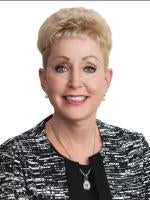Climate change-related litigation has been increasing in the United States for the past several years. Not only have the actual number of these types of cases increased, but the claims raised in these cases have been expanding—from state tort claims (nuisance, trespass, and negligence) to federal and state constitutional claims. These cases have been slowly working their way through the legal system, with a major consideration being: Should these cases be in state court, involving state tort claims, or federal court, involving federal statutes or federal common law, because of the major national policy implication of climate change that these cases have the potential to affect?
We previously wrote about this topic on our Energy and Environmental Trends Watch Blog and are providing an update here because the political and legal debates have intensified and these cases have major ramifications for small and large businesses alike, as well as for the overall economy. In short, these cases are only accelerating in importance.
Several states, counties, and municipal governments, including California, Connecticut, New York City, Baltimore, and Boulder (to name a few), have filed actions against oil and gas industry defendants in state courts under each plaintiff’s respective state tort laws. The government plaintiffs seek redress from the oil and gas industry for alleged climate change-related damages, such as the need to repair roads or bridges due to weather-related events as well as changing coastlines. While many of these cases were filed years ago, they remain largely in their procedural infancy and without any insight or decisions as to the substantive legal questions at hand. Defendants have sought dismissal or removal of these cases to federal court with varying levels of success. The Second Circuit, for example, affirmed a lower court’s dismissal of New York City’s climate change claims against industry defendants and affirmed the lower court’s ruling that federal common law displaced state tort claims related to climate change.[1] Several other federal circuits, however, have remanded these types of state tort climate change cases back to state courts for further proceedings (e.g., Third Circuit[2], Fourth Circuit[3], and Eighth Circuit[4]).
The U.S. Supreme Court had an opportunity to review this issue in early 2023, but declined and denied certiorari.[5] Again in January 2024, the U.S. Supreme Court denied certiorari for a case initiated by Minnesota.[6] But because of the number of these cases, the varying decisions from the federal circuits, and the national importance of the cases, the issues related to climate change and whether damages should be attributed to the energy industry—as the provider of the product and services maintaining the industrial revolution—will likely continue to make their way to the U.S. Supreme Court for consideration.
Absent clarity on this issue from the U.S. Supreme Court, the cases that have been remanded back to state court will continue with discovery and additional motion practice. If one of these cases heads to trial in state court on the merits, there will be major implications at stake as to the potential liability of the energy industry for alleged damages related to climate change and the basis for the claimed damages sought by municipal and state governments. We will continue to monitor these cases and provide updates because of the importance of this issue and the impending nature of these cases as they proceed further in litigation on the merits.
[1] City of New York v. Chevron Corp., 993 F.3d 81 (2d Cir. 2021)
[2] City of Hoboken v. Chevron Corp., 45 F.4th 699 (3d Cir. 2022), cert. denied sub nom. Chevron Corp. v. City of Hoboken, New Jersey, 143 S. Ct. 2483, 216 L. Ed. 2d 447 (2023)
[3] Mayor & City Council of Baltimore v. BP P.L.C., 31 F.4th 178, 238 (4th Cir. 2022), cert. denied, 143 S. Ct. 1795, 215 L. Ed. 2d 678 (2023)
[4] Minnesota by Ellison v. Am. Petroleum Inst., 63 F.4th 703 (8th Cir. 2023), cert. denied sub nom. American Petroleum Inst., et al v. Minnesota, No. 23-168, 2024 WL 72389 (U.S. Jan. 8, 2024)
[5] BP P.L.C. v. Mayor & City Council of Baltimore, 143 S. Ct. 1795, 215 L. Ed. 2d 678 (2023)
[6] American Petroleum Inst., et al v. Minnesota, No. 23-168, 2024 WL 72389 (U.S. Jan. 8, 2024)




 />i
/>i

